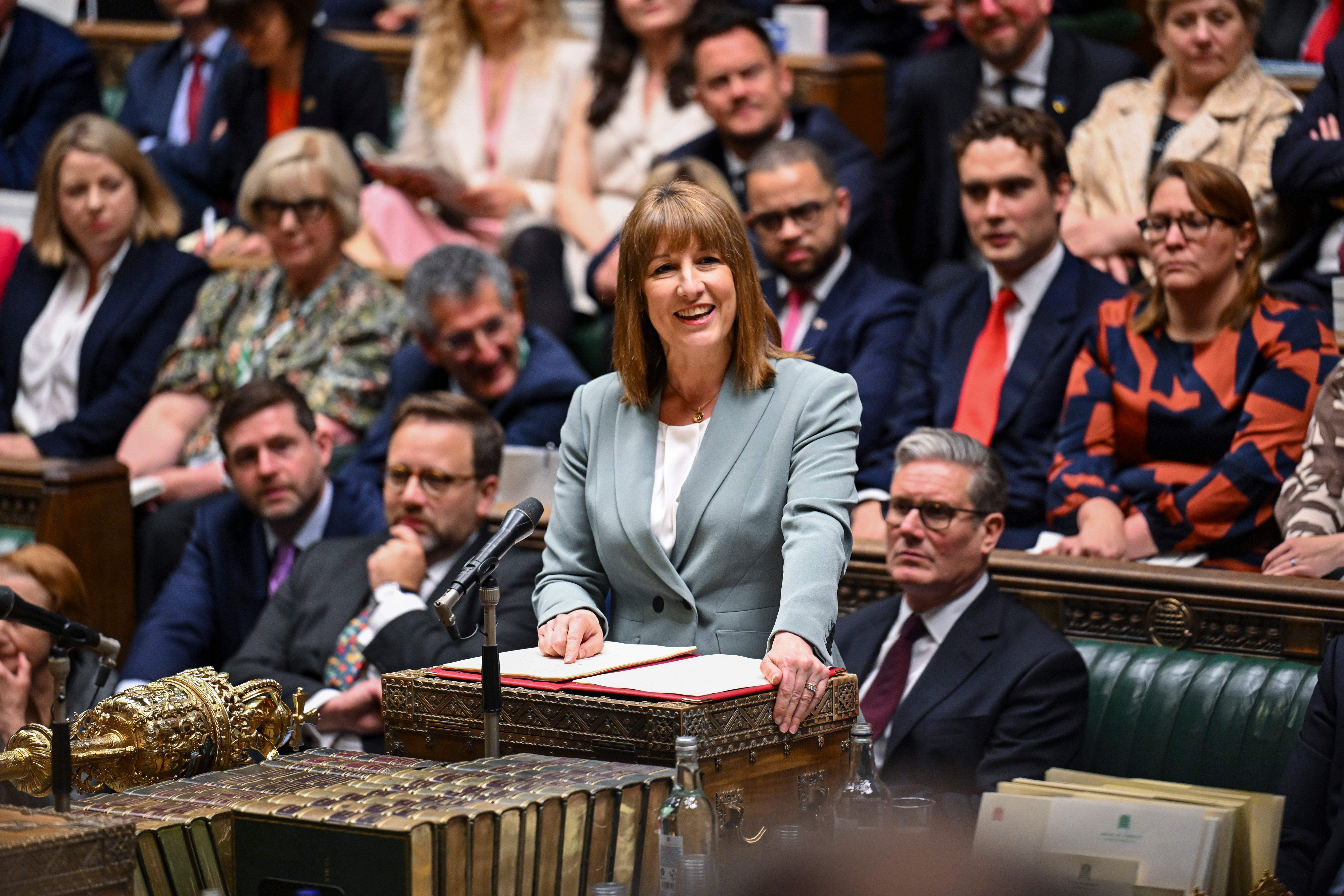Roll up, roll up for the Rachel Reeves buy now, pay later spending review
The chancellor unleashed a blizzard of big numbers in her plan for national renewal, writes James Moore – shame she’s probably going to have to raise taxes in the autumn to pay for it all


It was the Klarna spending review. (If you’re wondering what I’m on about, please do bear with me.)
Klarna, you see, is the buy now, pay later shopping app beloved by zoomers, which offers the opportunity to pay for your shopping in 30 days or three monthly instalments, depending on your status and the shop you’re buying from.
The problem with it is that it is a marvellous way of building up bills, debts, and big problems that will come back to bite you if you’re not careful.
This is the principal issue with the government’s spending review. Chancellor Rachel Reeves delivered big number after big number. “Labour choices”, she declared, to get Britain moving again.
Billions will be pumped into clean energy, carbon capture and nuclear power. There will be extra cash for the NHS. Defence spending is being pushed up to 2.6 per cent of GDP, if one includes the extra money for the spooks. There’s more money for free school meals and to fix crumbling classrooms. A veritable treasure chest. And, as we already know, the decision to means-test the pensioners’ winter fuel payment was (largely) reversed so that 75 per cent of them will now get it.
However, at the same time, Reeves made clear that she planned to stick by her fiscal rules that say day-to-day spending must be paid for by tax receipts. There should be no current account deficit.
Now, it is true that a big chunk of what was announced (or re-announced) will be covered by extra borrowing. Per those rules, she is allowed to borrow to invest, which covers things like energy and the announcements on rail, prisons and social housing. There is a lot of borrowing going towards this new investment spending – some £140bn. However, borrowing to invest is generally considered to be good borrowing.
There is a caveat. To make it work, those investments need to produce an economic return. Will the government’s plans do that? That is a very big – and open – question.

The NHS, schools, policing, defence, local government and more are largely covered by day-to-day spending. Here, things are going to be less cheerful than Reeves would have us believe, except for the review’s clear winners, health and defence.
“To make sense of today’s spending review, you need to understand what the government is calling Phase One and Phase Two. Phase One is last year and this year, 2024-25 and 2025-26,” the non-partisan number crunchers at the Institute for Fiscal Studies (IFS) explained.
“Phase Two starts next year, 2026-27, covers the rest of the parliament, and is the focus of today’s announcements. Take Phase One and Phase Two together, as the government does, and growth in government spending looks rather strong. Take Phase Two only and things look tighter.”
So far, so familiar. It doesn’t matter which party they come from; chancellors always quote big numbers that apply a glossy coat of paint to their speeches in the House of Commons, while leaving the gritty reality to the swathe of accompanying documents.
It is pushing it to describe what the IFS found in those documents concerning Phase Two as austerity 2.0. But it still looks set to get rather chilly for several departments, potentially enough to draw blood.
Even the schools budget is being frozen in real terms, at least if you strip out the extra for free school meals. Now consider what happens when future pay settlements are factored in. There may be trouble ahead.
So where does Klarna come in? None of this changes the chancellor’s big problem, namely the amount of fiscal headroom she has within those rules. There is barely any. But there were no announcements on any tax changes, because they are saved for the autumn Budget. Last year, this was unveiled at the end of October. If Reeves holds to form, this year’s will be with us in just over three months’ time.
Watch the government’s monthly borrowing figures carefully from now on. The recent ones have made for difficult reading for the chancellor. UK Plc has been writing many more IOUs than she would like, and than the economists expected. The progress of the economy hasn’t been terrible, but it has hardly been going gangbusters, to quote the previous PM.
Reeves had a lot of fun brandishing big numbers and blowing (not undeserved) raspberries at the opposition. But unless the economy or those borrowing figures improve quite significantly, her next big event will not be anything like as much fun for her, and especially not for us.
Join our commenting forum
Join thought-provoking conversations, follow other Independent readers and see their replies
Comments
Bookmark popover
Removed from bookmarks